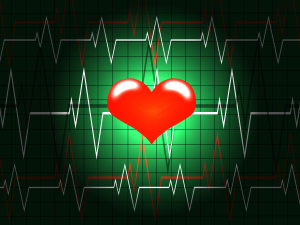Tag: metal toxicity
Stupidity of Toxic Vaccines#android#iPad#retweet
The vast majority of flu vaccines are preserved with a mercury compound called thimerosal. Many vaccines contain other toxic additives, such as the carcinogen formaldehyde.
During obstetrics training in medical school, we were taught to minimize the exposure of a pregnant mother and fetus to alcohol, drugs, and other potentially harmful substances.
Awake at 3 a.m.? Try this quick and easy trick to fall back asleep#insomnia#iPad#android
Do you often wake up at 3 a.m., your mind racing with thoughts, and you can’t fall back asleep? Try this crazy sounding but highly effective tip: Eat something! Make sure it’s not something sweet but instead something with protein and fat, such as nut butter, a bit of hard boiled egg, or some meat. Make sure to keep some food next to your bed with a glass of water so you don’t wake yourself up too much by going to the kitchen. You won’t feel hungry and most likely won’t feel like eating, but do it anyway as an experiment. Chances are you will fall right back to sleep. Why?
If things go according to plan you don’t bolt awake at 3 a.m. While you’re sound asleep you’re brain is hard at work and needs plenty of fuel. It is forming memories, clearing out old cells, regenerating — all while you’re fasting, having gone hours without eating. In order to give the brain the energy it needs, the body gradually raises cortisol, an adrenal hormone. Cortisol triggers the release or synthesis of glucose to fuel the brain during the nightlong fast and you sleep through the night.
That’s if things are working right. If you suffer with chronically low blood sugar then you are one of those people who is likely to bolt awake at 3 or 4 a.m. People with low blood sugar will have difficulty making enough cortisol to sustain the brain during the night. To compensate and keep the brain going, the body then releases “fight-or-flight” adrenal hormones. These adrenal hormones raise blood sugar back to a safer level to give the brain fuel. Unfortunately, they also raise stress, which can cause anxiety or panic in the middle of the night. This explains why you wake up at 3 or 4 a.m. with a racing mind, an infinite to-do list, in a panic, or some other stress-addled state.
Things you can do during the day to avoid waking up at 3 a.m.
Although a few bites of food may help you fall back asleep, it’s better to prevent that anxious wake up call in the first place. If low blood sugar has you waking up every morning at 3 a.m. try the following tips:
- Always eat breakfast, even if you don’t feel like it, and avoid sugary, high-carbohydrate foods with breakfast. Low blood sugar will cause you to wake up with no appetite. You may even feel nauseous. Eat anyway, you need to break the nightlong fast and stabilize your blood sugar.
- During the day eat frequently enough so blood sugar does not crash.
- Avoid sweets and starchy foods (breads, pasta, rice, potatoes, etc.) and adopt a lower-carbohydrate diet. People with low blood sugar symptoms typically eat too many sweets and starchy foods as well as frequently skip meals. Eat enough protein and healthy fats to sustain your energy.
Ask my office about nutritional compounds that can help you manage your blood sugar better and sleep through the night.
Why your doctor can’t help you#iBelieve#ASD#repost
Some good insight, that puts things in perspective from one of our, Featured Doctors.
You notice you’re feeling worse and worse. You suffer from chronic fatigue, pain, digestion issues, depression, anxiety, insomnia …. the list goes on. Yet when you go to your doctor, you’re told your lab tests are fine, it’s just age, or perhaps you need an antidepressant. If you press for more tests or keep returning with complaints, you’re labeled a problem patient or told it’s all in your head.
Unfortunately, this happens to untold numbers of people each year. When you can barely muster the energy to get through life’s daily tasks and you have long since abandoned your hobbies, sports, or time with friends, hitting a brick wall at the doctor’s office can fill you with despair.
It isn’t that your doctor is an uncaring person, he or she simply works in a paradigm that is woefully outdated when it comes to the exploding incidences of chronic and inflammatory conditions today. There are instances when conventional medicine is like a miracle, but for the one in five people suffering from autoimmune disease (a disease in which the immune system attacks and destroys tissue in the body or brain), and countless others suffering from undiagnosed autoimmunity, chronic inflammation, severe pain, environmentally induced illnesses, food sensitivities, chronic viral, bacterial, or parasitic infections, brain chemistry imbalances, hormonal imbalances, hair loss, unexplained weight gain, and more — being told your lab tests are fine and you simply need an antidepressant can feel like a kick in the groin.
Medical schools don’t teach nutrition
Medical doctors receive very little nutritional training despite an ever growing body of evidence linking diet with the explosion of chronic diseases today. We know, for instance, that the high blood sugar that comes from eating standard American fare can ultimately lead to diabetes, Alzheimer’s, or heart disease.
The standard approach to autoimmune disease, the occurrence rate of which far surpasses that of cancer and heart disease combined, is to wait until its advanced enough to either surgically remove the affected tissue or administer severe immune-suppressing drugs.
Gluten intolerance is still overlooked by many doctors. Standard testing for gluten sensitivity and celiac disease is limited and outdated, missing countless positive diagnoses. This despite the growing body of evidence that links gluten with autoimmune and neurological conditions. Other dietary proteins can also provoke severe immune reactions, something many doctors are not aware of unless it’s a classical food allergy (which is a different beast than a food sensitivity).
Doctors are constrained by their medical education, which has yet to catch up with modern illnesses. Liability insurance, health insurance, peer pressure, lack of time, and other factors often keep them from investing in the education required to help the millions of people suffering from “mystery” symptoms which, when you look at the science, are not always that mysterious.
Functional medicine for chronic symptoms and illness
Fortunately, functional medicine specializes in using nutritional, botanical, and nutraceutical approaches to manage chronic, inflammatory, and autoimmune conditions. We keep up with the latest science and the latest lab testing, which is integral to unraveling chronic symptoms and conditions. If you’ve hit a dead end with your medical provider, ask our office how functional medicine can help you regain your energy, vitality, and well-being.
This post in it’s entirety, is compliments of www.drflannery.com
Dr. Kory Branham – Featured Doctor#Vaccines#ASD#Health
I have been pleased to find Dr. Kory Branham at Premier Wellness. Upon moving to the Salt Lake City, Utah area, I wanted to find a physician that matches the type of healing I find most beneficial for my family and I. He has aided many individuals, and families, and I am fortunate to benefit from his tried and tested techniques. Dr. Branham’s practice has much to offer, whether you are interested in strengthening your immune system or healing from vaccine damages.
Thank you, Dr. Branham for all the good that you do.
I approach immune challenges from a whole body standpoint. I use Applied Kinesiology (manual muscle testing), to tune into each individual body, to determine the organs that are the weakest and identify the factors contributing to the weakness ranging from infections to heavy metals and chemical toxicities, to food allergies, to emotional challenges, to inherited weaknesses.
I use remedies ranging from herbs, flower remedies, vitamins and minerals to structural, spinal and cranial adjusting to emotional release techniques to homeopathic acute and constitutional remedies. Often times the immune system which is a complex of the thymus gland, the spleen, and the lymphatic system is damaged or inhibited by food allergens, or low-grade persistent infections ranging from yeast to viruses, to parasites.
Other organs being depleted will also impact the immune system including low or high adrenal or low thyroid function. It is well known that chronic depression, anxiety or bitterness can suppress the immune system and lead to illness. This is true “Holistic healing,” assessing all factors and then identifying which ones are the priority to address for each individual person.
Some of the most common immune support supplements are zinc, selenium, vitamin C, B vitamins, Reishi and astragalus mushrooms, antibiotic herbs like oregano, and goldenseal and thymus and spleen glandular extracts.
Which, in regard to vaccinations, I use homeopathic test vials for the different vaccines to assess if the body is stressed by them, and specifically which glands or tissues are stressed, then I identify the appropriate remedy or treatments to heal that stressed tissue.
On average about 1/3 of all weaknesses are identified as having emotional components. A big part of what I do is to bring awareness to these issues and help the patient release this energy.
Another hidden factor creating a lot of immune stress is hidden food allergies or sensitivities which can be assessed using Applied Kinesiology.
Dr. Branham’s Practice – Premier Wellness Utah
BIO
Dr. Kory Branham
Dr. Branham was born in St. George, Utah in 1955.
At six months of age, his family moved to northern Wisconsin where he grew up and attended high school.
His exposure to natural healing methods began early as his mother opened a health foods store in their home in Wisconsin in the 1960’s. Also from a young age he was exposed to Chiropractic adjustments by his father who had attended McCoy Chiropractic Institute in Seattle, Washington, but was drafted into the Army during the Korean War before finishing school.
At age 19, Dr. Branham served a mission for the LDS church in both Toronto, Canada and Sao Paulo, Brazil. On his return, he attended undergraduate school at BYU and then did his Chiropractic studies at the National College of Chiropractic in Lombard, Illinois. He graduated Magna Cum Laude in 1980 and began his career first in Texas then in Detroit, Michigan where he spent three years working for Dr. George Goodheart.
Dr. Goodheart was the founder of Applied Kinesiology, which is a diagnostic technique using manual muscle testing to evaluate the body. Through “AK”, a practitioner can quickly evaluate and integrate many different kinds of natural therapy and apply it to the patient very specifically. Dr. Branham became certified as a Diplomat of the International College of Applied Kinesiology and has become a master of this technique.
In addition to this technique Dr. Branham has studied and integrated many other healing modalities into his practice including craniosacral therapy, trigger-point release techniques, Neuro-Emotional Technique(“NET”), diversified adjusting, and functional medicine which utilizes functional hair, blood, and stool analysis to diagnose the patient.
Dr. Branham moved to Utah and began practice here in 1986. Initially attracted to the mountains and snow for the climbing and skiing he met his wife Julie here and has made it his home. He currently resides in Alpine, Utah where he and his wife are raising four children and running a Yoga studio.
In addition to his busy practice and family life, Dr. Branham enjoys a variety of outdoor activities including skiing, snowboarding, road and mountain biking, running barefoot, sailplane and airplane flying and windsurfing.
He is continually learning and experiencing new things and his philosophy in life and for his patients is to improve and maximize the quality of life for all so we can each have the most enjoyment and fulfillment of our time here on earth.
Cholesterol often wrong target in heart disease risk#health#cholesterol#heartattack
Here is another great post from one of our, Featured Doctors , containing a surprise on one of the big culprits behind heart disease. Please take a moment to read over the post, and add to your natural immunity resources.
Cholesterol often wrong target in heart disease risk 
By Dr Flannery
Everyone has heard that high cholesterol is bad for heart health. But as it turns out, the association between cholesterol and cardiovascular disease has been somewhat misrepresented. Doctors are starting to accept that cholesterol levels do not necessarily predict risk for heart disease as much as we thought. Consider the following:
75 percent of people who have heart attacks have normal cholesterol.
Older patients with lower cholesterol have a higher risk of death than those with higher cholesterol.
Countries with higher average cholesterol than Americans such as the Swiss or Spanish have less heart disease.
Recent evidence shows that it is likely statins’ ability to lower inflammation that accounts for the benefits of statins, not their ability to lower cholesterol.
We need cholesterol!
Cholesterol is a fat-like substance found in every cell in the human body. The liver makes 75 percent of cholesterol. Cholesterol helps produce cell membranes, vitamin D, and vital hormones, and is needed for neurological function. Put bluntly, we would die without it.
The cholesterol players
When we measure cholesterol levels, we are actually measuring the lipoproteins LDL and HDL. We refer to them as cholesterol, but they are actually small packages of fat and protein that help move cholesterol throughout the body.
High-density lipoprotein — HDL
This is considered “good” cholesterol. It helps keep cholesterol away from your arteries and removes excess arterial plaque.
Low-density lipoprotein — LDL
This is considered “bad” cholesterol. It can build up in the arteries, forming plaque that narrows the arteries and makes them less flexible (atherosclerosis).
Also important are:
Triglycerides
Elevated levels of this dangerous fat have been linked to heart disease and diabetes. Levels rise from eating too many sugars and grains, smoking, being physically inactive, excessive drinking and being overweight.
Lipoprotein (a) or Lp(a)
Lp(a) is made up of an LDL part plus a protein (apoprotein a). Elevated Lp(a) levels are a very strong risk for heart disease.
When testing cholesterol, total cholesterol is not as important as:
Levels of HDL “good” cholesterol versus LDL “bad” cholesterol
Triglyceride levels
The ratio of triglycerides to HDL
The ratio of total cholesterol to HDL
In order for cholesterol to cause disease, it has to damage the arterial walls. There are small and large particles of LDL, HDL, and triglycerides. Large particles are practically harmless, while small, dense particles are the dangerous ones, lodging in the arterial walls, causing damage and inflammation. The resulting “scar” is called plaque. Repeated trauma causes a buildup of plaque and chronic inflammation while your risk of high blood pressure and heart attack increases.
The biggest culprits in high cholesterol? Sugar and bad fats!
Although we’ve been taught that a high-fat diet causes problems with cholesterol, the type of fat you eat is more important than the quantity. Trans fats, or hydrogenated and saturated fats, promote abnormal cholesterol, while omega-3 fats and monounsaturated fats actually improve the type of cholesterol in our bodies. Eat your good fats, your body needs them!
The surprise: the biggest source of abnormal cholesterol isn’t dietary fat, but sugar. Sugar (and refined carbs, including processed white foods), drives good cholesterol down and triglycerides up. It causes those small particles, encouraging dangerous plaque buildup, and can lead to heart disease and metabolic syndrome or “pre-diabetes.” Doctors are starting to admit that sugar, not dietary fat, is the bigger cause of most heart attacks.
So, the real concern isn’t really the amount of total cholesterol you have, but the type of fats, sugar, and refined carbohydrates in your diet that lead to abnormal cholesterol production.
Inflammation promotes heart disease
Systemic inflammation plays a key role in heart disease and, in fact, most all chronic illnesses. Systemic inflammation can arise from poor diet, a sedentary lifestyle, stress, allergies, and more. Research at Harvard has shown that people with high levels of systemic inflammation (measured by a test called C-reactive protein, or CRP) had higher risk for heart disease than those with high cholesterol, while normal cholesterol was not protective to those with high CRP.
Clearly, multiple factors come together to determine your risk for heart disease, including diet, lifestyle, and environment. If you are concerned about your heart health, contact my office for a comprehensive evaluation to help reveal the factors that may increase your risk for heart disease.
Autistic Babe Restored#Vaccines#ASD#Autism
An Adventure in Healing!
Autistic Babe Restored

E-mail from Trevor’s Mom after just 6 Heilkunst Treatments:
Just couldn’t wait until next Wed to tell you what a GREAT day Trevor had today. He woke up in great spirits with a huge appetite that lasted ALL day. He got everyone in the family involved in a pretend pirate game in which he declared that I was the captain and he and everyone else were the Mates. We have NEVER played pirates before so I don’t know where that came from. Later in the afternoon, Stephanie got him to play doctor and bandage a cut she had. He really got into character with that one too.
We went to playgroup at our church this morning and he brought a toy car along with him. I warned him that he would have to share it…which he normally would not do very willingly. She said that he would and sure enough, not only did he share…but he ENCOURAGED everyone to play with it…and came to me at one point dissapointed because no one else wanted to pay with his car…I quickly found a boy that wanted to play with it and he was happy again.
He ate a TON during snacktime at playgroup…this is in comparison to the past 2 Wed morning playgroups where he never even sat down at the snack table (the usual for him).
He was the first one there this morning and the last to leave. Not that I’m happy about what he ate…pretzels and graham crackers….but he did have SEVERAL helpings of each.
His energy level stayed high in the afternoon and he played well with Rachel (they usually CLASH). He had a swim lesson at 3pm and he did GREAT!! He could have focused more on the teachers instructions and his eye contact could have been better…but he did do everything that was asked of him once he listened or watched. Last Wed was his first lesson and he spent the entire 1/2 hour crying/screaming ” I want to go home” and never got into the water at all!!
He did not get as upset and throw things when he got frustrated trying to play a game this evening. Did not get upset when I left the house twice to drop off/pick up his sister. (Dad was home…but Trevor usually wants to go with me when I leave).
He just had smiles and giggles all day and was a lot of fun!!!
He was however VERY constipated all afternoon…with a blockage….had some liquidy bms leak around the blockage….but he did finally pass the LARGE BM at around 5 pm today. But, even with the constipation…he was in pretty good spirits….just could not SIT down at a right angle for most of the afternoon…poor guy!!
He did a funny thing at bedtime. He said, next time (meaning tomorrow night) could I have a baby bottle? I asked him why and he said because he liked the sippy thing. Interesting…. He did LOVE his bottles and we had lots of trouble g
Well…I knew you said we’d see rapid improvements with the addition of my treatment! Wow! I really think that ever since the MMR remedy, he has been improving in so many areas very rapidly. As for me….I’ve lost 8 lbs so far!! I’m under 200 and have no plans to ever got back up!!! I’m thrilled. I find this diet pretty easy to stick with….I do miss carbs…but if I just drink the Raspberry Leaf tea when I have a craving, it takes care of it.
I’m looking forward to Trevor‘s appointment next Wed!!
Many Blessings,
TL
Allyson McQuinn, DMH: I have seen Trevor for only 6 visits so far and his improvements have been monumental and we have focussed almost solely on clearing each vaccination booster/trauma using the principles of Heilkunst. When I first began working with Trevor, he did not make eye contact, he constantly flapped his arms, and had many patterns of a ritualistic nature. He would answer questions like, “How are you?” with, “My name is Trevor.” His Mom has been stellar to work with regarding the Regimen component as much of this jurisdiction had already been addressed, which would contribute to the greater resolution in the jurisdiction of lawful medicine we have come to expect in this case.
Thank you, Trevor’s mom for sharing the healing your sweet son is receiving. You have a wonderful doctor, and we would love to hear more of Trevor’s progress in the future.
Further down on the blog roll, you will find another touching story, of Alexandre’s healing journey from autism. Dr. Allyson McQuinn is one of our Featured Doctors this month, and has a tried and true method to help in many different scenarios.
jen
Bio:
Allyson McQuinn, DHHP, JAOH, is a Physician of Heilkunst Medicine in international practice. She is the author of 10 books, including her 1st book, “The Path To Cure; The Whole Art of Healing” (www.thepathtocure.com), which is about her son Jordan’s departure from the Autism Spectrum. Allyson’s husband, Jeff Korentayer, specializes in the treatment of vaccine damaged individuals, also using the principles of Heilkunst Medicine. Both of them regularly provide patients with homeopathic remedies for the flu and immunizations for children and world travellers, prescribing most anything patients seek on the sound basis of homoprophylaxis with 99% efficacy (without causing an ounce of harm) over the last 12 years.
reception@arcanum.ca
1-877-233-0779
Toxins linked to brain damage and birth defects#vaccines#ASD#detox
 (NaturalHealth365) A new study has revealed that United States counties with higher rates of genital deformities in newborn males also had higher rates of autism and intellectual disabilities. Researchers state this suggests that in-utero exposure to toxins, such as lead and pesticides, play a role in the skyrocketing autism rates. The analysis looked at 100 million U.S. medical records and examined them at a county level.- See more at: http://www.naturalhealth365.com/dangerous_chemicals/0948_pesticides_brain_damage.html#sthash.xBW82M57.dpuf
(NaturalHealth365) A new study has revealed that United States counties with higher rates of genital deformities in newborn males also had higher rates of autism and intellectual disabilities. Researchers state this suggests that in-utero exposure to toxins, such as lead and pesticides, play a role in the skyrocketing autism rates. The analysis looked at 100 million U.S. medical records and examined them at a county level.- See more at: http://www.naturalhealth365.com/dangerous_chemicals/0948_pesticides_brain_damage.html#sthash.xBW82M57.dpuf (NaturalHealth365) A new study has revealed that United States counties with higher rates of genital deformities in newborn males also had higher rates of autism and intellectual disabilities. Researchers state this suggests that in-utero exposure to toxins, such as lead and pesticides, play a role in the skyrocketing autism rates. The analysis looked at 100 million U.S. medical records and examined them at a county level.- See more at: http://www.naturalhealth365.com/dangerous_chemicals/0948_pesticides_brain_damage.html#sthash.xBW82M57.dpuf
(NaturalHealth365) A new study has revealed that United States counties with higher rates of genital deformities in newborn males also had higher rates of autism and intellectual disabilities. Researchers state this suggests that in-utero exposure to toxins, such as lead and pesticides, play a role in the skyrocketing autism rates. The analysis looked at 100 million U.S. medical records and examined them at a county level.- See more at: http://www.naturalhealth365.com/dangerous_chemicals/0948_pesticides_brain_damage.html#sthash.xBW82M57.dpuf (NaturalHealth365) A new study has revealed that United States counties with higher rates of genital deformities in newborn males also had higher rates of autism and intellectual disabilities. Researchers state this suggests that in-utero exposure to toxins, such as lead and pesticides, play a role in the skyrocketing autism rates. The analysis looked at 100 million U.S. medical records and examined them at a county level.- See more at: http://www.naturalhealth365.com/dangerous_chemicals/0948_pesticides_brain_damage.html#sthash.xBW82M57.dpuf
(NaturalHealth365) A new study has revealed that United States counties with higher rates of genital deformities in newborn males also had higher rates of autism and intellectual disabilities. Researchers state this suggests that in-utero exposure to toxins, such as lead and pesticides, play a role in the skyrocketing autism rates. The analysis looked at 100 million U.S. medical records and examined them at a county level.- See more at: http://www.naturalhealth365.com/dangerous_chemicals/0948_pesticides_brain_damage.html#sthash.xBW82M57.dpufNew research sheds light on links between birth defects and intellectual disabilities, inclusive of Autism. 
Correlation between lead, pesticides and prescription drugs are among toxins affecting the fetus.
Click on the link below to learn more.
naturalhealth365.com


